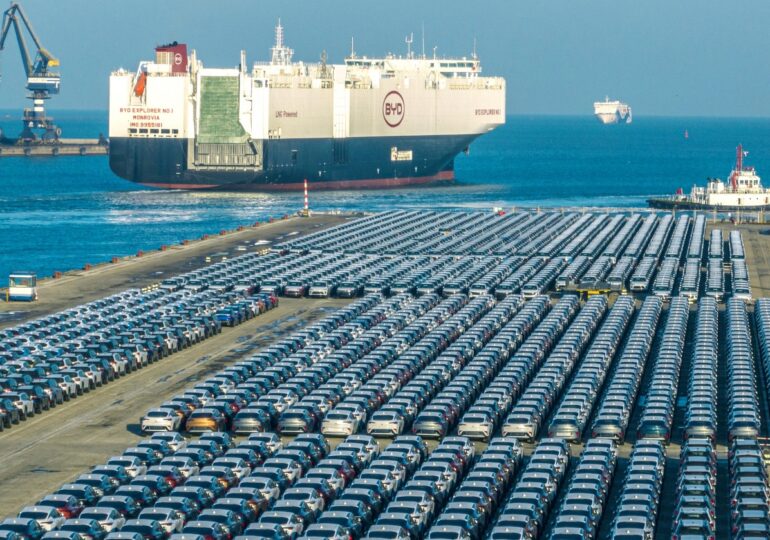The European Commission has announced that the proposal to impose customs duties of up to 45% on electric cars imported from China has received the necessary support from the member states to come into effect.
The vote comes after the European Commission determined, following a year-long investigation, that Beijing had unfairly subsidized the electric vehicle sector, allowing them to undercut prices on foreign markets.
As a result, the European executive has proposed increasing tariffs by up to 45% for electric cars imported from China for the next five years.
Romania was among the states that abstained in today's vote. The official stance of the member states has not been announced, but several diplomats revealed to Euronews how they positioned themselves:
- 10 were in favor: France, Italy, the Netherlands, Poland, Denmark, Ireland, Bulgaria, Estonia, Lithuania, and Latvia. These countries represent 45.99% of the EU population.
- 12 abstained: Romania, Austria, Belgium, Czech Republic, Cyprus, Croatia, Greece, Luxembourg, Portugal, Spain, Sweden, and Finland (31.36% of the EU population).
- 5 states voted against: Germany, Hungary, Malta, Slovenia, and Slovakia (22.65% of the EU population).
The high number of abstentions reflects long-standing dissatisfaction with how Europe should address China's competition.
Although there is political consensus that China's unfair trade practices require a strong and united response, fears of trade retaliation seem to have softened the resolve of many European states as the decision date approached, notes the cited source.
The European Commission previously warned that without tough measures, EU car manufacturers would suffer unsustainable, possibly irrecoverable losses and be pushed out of the profitable market for net-zero mobility, with painful consequences for 2.5 million direct jobs and 10.3 million indirect jobs in the EU.
The EU industry is already in crisis due to high energy prices, slow consumer demand, and fierce global competition.
The additional tariffs aim to offset the harmful effects of China's subsidies and reduce price differences between Chinese cars and those produced in the EU. These tariffs vary depending on the brand and their level of cooperation with the Commission's investigation:
Here is how they will be applied:
- Tesla: 7.8%
- BYD: 17%
- Geely: 18.8%
- SAIC: 35.3%
- Chinese manufacturers who cooperated in the Commission's investigation but were not mentioned separately: 20.7%
- Chinese manufacturers who did not cooperate: 35.3%
The tariffs will be applied starting in November and will be collected by EU customs authorities.
These will be applied on top of the current 10% tax level. This means that some Chinese car manufacturers will face tariffs of over 45% when trying to bring their products to the EU single market.
The Commission's decision will certainly provoke Beijing's dissatisfaction. From the outset, China has labeled the Commission's investigation as an "unexpected protectionist act," continuously denied the existence of subsidies, and threatened retaliation measures against EU exports of dairy products, cognac, and pork.
However, despite Friday's resolution, negotiations between the EU and China will continue until October 30, the legal deadline set by the Commission's investigation.
T.D.

